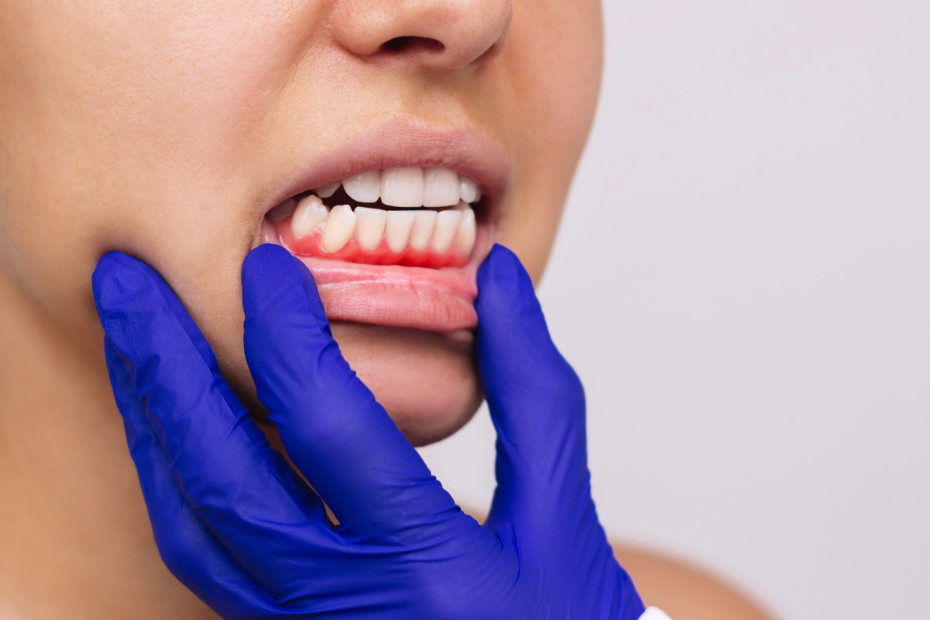Have you ever noticed your gums bleed whilst brushing or flossing? Well, you’re not alone, but just because it’s common doesn’t mean it’s right. Bleeding gums can indicate an underlying issue, ranging from mild irritation to more serious gum disease. In our blog, we’ll help you understand the causes and solutions to maintain optimal oral health and prevent long-term problems.
Common Causes Of Bleeding Gums
There can be many causes of bleeding gums, including the following:
- Gingivitis: Gingivitis, also known as early-stage gum disease, is one of the most common reasons for bleeding gums. Gingivitis occurs when plaque buildup leads to inflammation and irritation of the gums. Symptoms can include redness, swelling, and tenderness.
- Brushing Too Hard: Using a hard-bristled toothbrush or applying excessive pressure while brushing can cause gum irritation and bleeding. Opt for a soft-bristled toothbrush and use gentle, circular motions.
- Flossing Incorrectly Or Infrequently: If you’ve just started flossing or don’t floss regularly, your gums may bleed as they adjust to the routine. Ensure you have the correct flossing technique—be gentle and follow the natural curve of your teeth.
- Plaque And Tartar Buildup: When plaque isn’t removed effectively, it hardens and becomes tartar, which can irritate the gums and can lead to bleeding. If you think you have plaque, ensure you book a professional cleaning to help prevent and remove this buildup.
- Vitamin Deficiencies: A lack of essential vitamins, specifically vitamin C and vitamin K, can lead to gum bleeding. Incorporating leafy greens, citrus fruits, and other nutrient-rich foods into your diet can help.
- Hormonal Changes: Pregnancy, menopause, and other hormonal shifts can make gums more sensitive, increasing the likelihood of bleeding.
- Underlying Health Conditions: Certain medical conditions, for example, diabetes and blood disorders, can contribute to bleeding gums. If the issue continues despite good oral care, consult a healthcare provider.
How To Stop And Prevent Bleeding Gums
It’s great to understand the causes of bleeding gums, but it’s essential to understand how to stop and prevent them:
- Improve Your Oral Hygiene Routine: Ensure you’re brushing twice a day with a soft-bristled toothbrush, flossing daily using a gentle technique, and using an antibacterial mouthwash to reduce plaque and bacteria.
- Visit Your Dentist Regularly: Professional cleanings remove tartar and help detect early signs of gum disease before they get worse.
- Maintain A Healthy Diet: Adapt a diet rich in vitamins C and K, and drinking plenty of water, helps support gum health.
- Quit Smoking: Smoking weakens the immune system and increases the risk of gum disease.
- Manage Health Conditions: If you have diabetes or other medical concerns, keeping them under control can positively impact your gum health.
Bleeding gums shouldn’t be ignored – whether it’s due to poor oral hygiene, aggressive brushing, or an underlying health condition, addressing the root cause is crucial. Adopting a correct oral care routine and seeking professional dental advice when necessary can keep your gums healthy and strong. If you’re looking to book a dental check-up, contact our expert team today! If your gums continue to bleed despite good oral hygiene, or if you experience persistent swelling, bad breath, or gum recession, schedule an appointment with your dentist. Early intervention can prevent more serious dental issues down the line.

